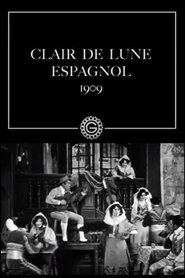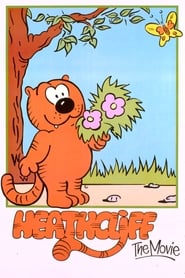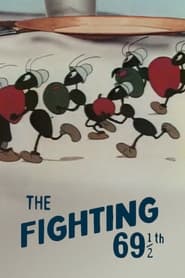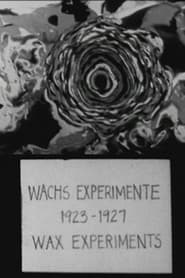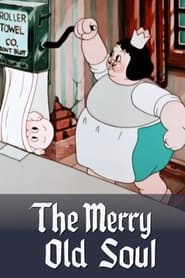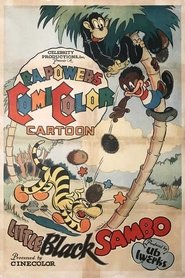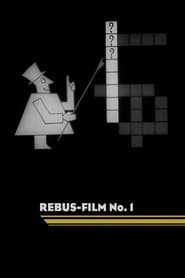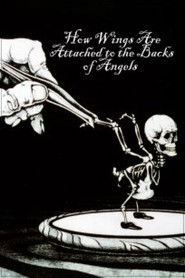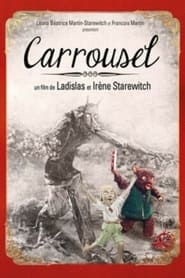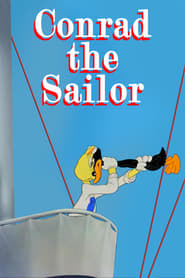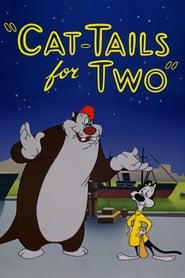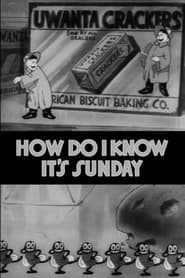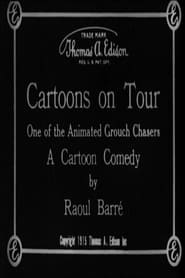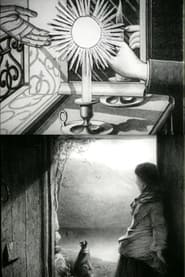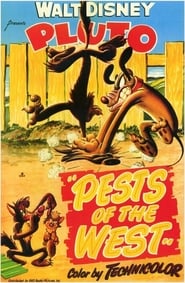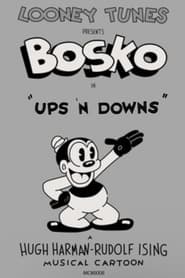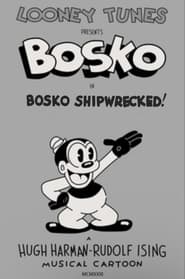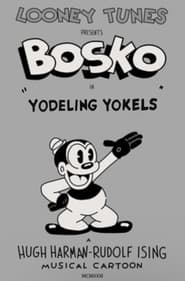Top Rated Animation Movies - Page 338
-
Spanish Clair de Lune
1909
star 5.7Two lovers perform a fandango dance. A jealous quarrel follows and the heart-broken swain decides to end it all. He throws himself from the window of his room, but instead of falling to his death, the anchor of a passing balloon intercepts his flight and he is taken high into the clouds. Laughing at his plight, the moon arouses the anger of the desperate lover and a battle between the two ensues. -
Heathcliff: The Movie
1986
star 5.4One rainy day, Heathcliff babysits and recounts old stories while his nephews are reluctantly forced to listen. -
The Fighting 69½th
1941
The Fighting 69½th
1941
star 6.2Battalions of red and black ants go to war over an unattended picnic blanket full of food. -
Wax Experiments
1927
Wax Experiments
1927
star 6.7For the production of this film, Oskar Fischinger tinted various layers of hot wax. After cooling, the resulting lump of wax resembled a marble cake. Fischinger then began to cut off slices from the lump, photographing each step. -
The Merry Old Soul
1935
The Merry Old Soul
1935
star 5.5Old King Cole marries the Woman in the Shoe. As soon as they get home, the babies show up from every drawer and closet, much to the king's chagrin. -
Little Black Sambo
1935
Little Black Sambo
1935
star 4.7Mammy gives Little Black Sambo a quick scrub on the washboard, then pats him down with baby powder, black baby powder, before sending him off to play. She warns him about the tiger... -
Rebus-Film Nr. 1
1925
Rebus-Film Nr. 1
1925
star 6.7An "extra" shown in two parts at the movie theater, before and after a feature: part one gives the clues to six words in a crossword puzzle, part two gives the answers. In addition to the visual clues, which are clips of a party, an Asian country, a European city, table games, winter, and bullfighting, there are montages of street scenes and spinning objects. A simple cartoon character, Mr. Rebus, walks the audience through the clues, and title cards encourage the participation of the theatergoers. -
Alice Cans the Cannibals
1925
star 4.1Alice and her cat are driving along the coast when they accidentally ride off a cliff and into the ocean. They trick a fish into towing them along until a storm hits and they are swept away to the Cannibal Islands, where they are pursued aggressively by the locals. -
How Wings Are Attached to the Backs of Angels
1996
star 6.8Black and white drawings blended with photographic images depict an old man, with various tiny gadgets, trying to find the anatomy of the wings of an angel. -
Winter Carousel
1958
Winter Carousel
1958
star 6.2A small group of animals gathers around a frozen pond. The animals then play together on the ice and in the snow. Later, when the season changes, they look for new ways of passing the time. -
Conrad the Sailor
1942
Conrad the Sailor
1942
star 6.2Conrad, a sailor aboard a Navy battleship, is swabbing the deck when he is interrupted and tormented by Daffy Duck. -
Cat-Tails for Two
1953
Cat-Tails for Two
1953
star 6.5Two cats try to catch Speedy Gonzales aboard a ship, without much success. -
How Do I Know It's Sunday
1934
star 5.5Inside a general store, the products all come to life and happily sing the title song. An Eskimo falls for a cookie and has to come to the rescue when a swarm of flies invades. -
Cartoons On Tour
1915
Cartoons On Tour
1915
star 6.7A father and daughter each enjoy their printed "Grouch Chaser" cartoons, which come to life for the audience. Meanwhile, the daughter is secretly planning to elope. -
Duo Concertantes
1964
Duo Concertantes
1964
star 5.2Jordan’s imagery is exquisite and eloquent, concentrating on simple, repeated use of particularly poetic symbols and figures, a conglomerative effect of old Gustave Dore drawings, 19th century whatnot memorabilia, all fused to a totally aware perception. —Lita Eliseu, East Village Other -
Primitive Pluto
1950
Primitive Pluto
1950
star 6.7Pluto's primitive wolf nature emerges and berates him for going soft. But their little hunting trip goes bad when Pluto encounters a rabbit and bear that give him some trouble. -
Pests of the West
1950
Pests of the West
1950
star 7Father and son coyotes try to sneak into a henhouse that Pluto is guarding. -
Ups 'n Downs
1931
Ups 'n Downs
1931
star 5.2Bosko runs a hot dog stand at an amusement park; but Bosko sneaks away to the racetrack to ride his mechanical horse. -
Bosko Shipwrecked!
1931
Bosko Shipwrecked!
1931
star 5.3Bosko is shipwrecked on an island where he is chased by a lion and pursued by simian cannibals. -
Yodeling Yokels
1931
Yodeling Yokels
1931
star 4.8Bosko and Honey yodel happily in the Alps until a series of disasters end with Honey rushing downriver on an ice floe.
 Netflix
Netflix
 Amazon Prime Video
Amazon Prime Video
 Apple iTunes
Apple iTunes
 Apple TV Plus
Apple TV Plus
 Disney Plus
Disney Plus
 Google Play Movies
Google Play Movies
 Paramount Plus
Paramount Plus
 Hulu
Hulu
 HBO Max
HBO Max
 YouTube
YouTube
 fuboTV
fuboTV
 Peacock
Peacock
 Peacock Premium
Peacock Premium
 Amazon Video
Amazon Video
 The Roku Channel
The Roku Channel
 AMC+
AMC+
 Kocowa
Kocowa
 Hoopla
Hoopla
 The CW
The CW
 Vudu
Vudu
 Starz
Starz
 Showtime
Showtime
 PBS
PBS
 Pantaflix
Pantaflix
 FXNow
FXNow
 Tubi TV
Tubi TV
 Kanopy
Kanopy
 Comedy Central
Comedy Central
 Crunchyroll
Crunchyroll
 Microsoft Store
Microsoft Store
 Redbox
Redbox
 Sun Nxt
Sun Nxt
 ABC
ABC
 DIRECTV
DIRECTV
 Crackle
Crackle
 Fandor
Fandor
 Plex
Plex
